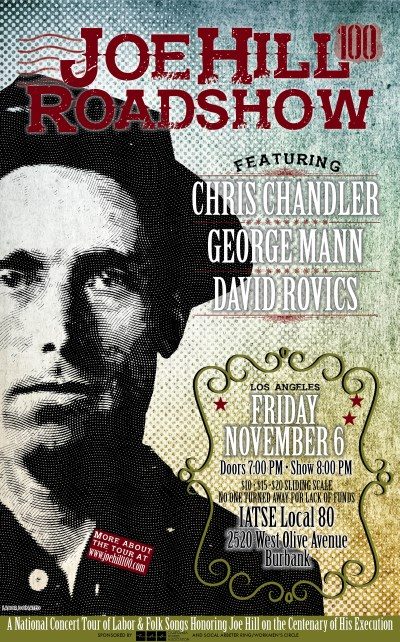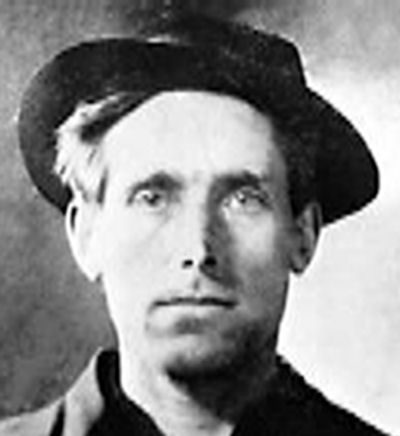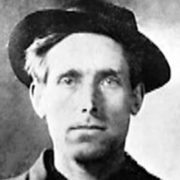THE JOE HILL 100 ROADSHOW ROLLS INTO TOWN
The Joe Hill 100 Roadshow Rolls into Town
Burbank IATSE Local 80 – Friday November 6, 2015
 Grassroots superstar progressive troubadour David Rovics and the Joe Hill Road Show 100 rolled into town last night at the most fitting venue imaginable—a union hall in Burbank. It was like the reappearance of the Almanac Singers circa 2015—for as Woody said, “You never knew which ones were going to show up for any particular show.” The lineup for the Joe Hill Road Show changes depending on which part of the country they are in, what the airfares happen to be and what the local conditions are on the ground.
Grassroots superstar progressive troubadour David Rovics and the Joe Hill Road Show 100 rolled into town last night at the most fitting venue imaginable—a union hall in Burbank. It was like the reappearance of the Almanac Singers circa 2015—for as Woody said, “You never knew which ones were going to show up for any particular show.” The lineup for the Joe Hill Road Show changes depending on which part of the country they are in, what the airfares happen to be and what the local conditions are on the ground.
For my money, this was as good as it gets: David Rovics—fresh off the current leg of his Dylanesque never-ending tour—with New York labor troubadour George Mann and actor/playwright author (of Avoiding Godot) Chris Chandler—whose extended dramatic monologues and video storytelling of the historic June 7, 1913 Madison Square Garden Pageant for the Paterson Silk Strike of 1913 (spoken over Rovics’ impassioned performance of folk hero John Henry in drop “D” tuning) immeasurably enhanced the traditional, original and Joe Hill songs supplied by Rovics and Mann. It was the highlight of the show and as engaging and high-spirited a tribute to murdered labor martyr Joe Hill as we are likely to see—and the perfect introduction to the four-show onslaught of tributes now underway—leading up to and away from the 100th anniversary of his execution in Salt Lake City, Utah, November 19, 1915.
Rovics has been described (by Pacifica Democracy Now! host Amy Goodman) as “the musical version of Democracy Now!” He is as close to a modern-day Phil Ochs as we have seen—writing songs as fast as today’s headlines, and smaller stories as well—the ones that major newspapers don’t have time for. For the Joe Hill Road Show he has featured some of Hill’s lesser-known songs like Where the Fraser River Flows—which he arranged for a special tuning on his old Martin D-28 that absolutely shimmered like the river flowing past. It was gorgeous, as well as powerful and riveting—a masterful and uplifting interpretation. Rovics also included some of his own inspired recent songs like I’m a Better Anarchist Than You, poking fun at the internecine feuds among various leftist sects from Communists, Socialists, Anarchists and Progressives of all stripes. It’s hilarious and he even has a bumper sticker to go with it—and a joke as well: “A communist and an anarchist get in a car; the question is, “Who’s driving?” Answer: “The cop.” Among this well-traveled left wing audience, it brought down the house.
New York-based folk singer George Mann opened the proceedings with one of Hill’s earliest and best-known songs—written for the famed Wobbly (Industrial Workers of the World, or IWW) free speech fight in Spokane, Washington in 1909—The Preacher and the Slave. That is the quintessential Joe Hill song which put the phrase “Pie in the Sky” in the English language and eventually Bartlett’s Familiar Quotations. Based on the Christian hymn Sweet Bye and Bye, it reverses the Gospel focus on the Hereafter to tell workers to get what’s coming to them in the here-and-now.
 As with so many of Joe Hill’s songs I first heard it from Bruce (“U. Utah”) Phillips, “The Golden Voice of the Great Southwest,” (May 15, 1935 – May 23, 2008) the modern folk singer and storyteller who single-handedly revived the songs and lore of Joe Hill and the IWW over a forty-year performing and recording career. And again, as with so many of Hill’s songs, Bruce had a great story to go with it, which I stole from “Uter” (the way he often humorously pronounced his own name) and hereby pass on to you. The Wobblies often parodied hymns and popular songs to make them easy to learn and reproduce with just the lyrics in their “Little Red Songbook”—never out-of-print since 1909. They would sing them on street corners and public rallies, often with the Salvation Army on one side of the street, and the IWW on the other. The Salvation Army drew the crowd to their preacher and drummer; all the Wobblies had to do was get them to cross the street to listen to their labor sermons instead of Christian homilies about how “God’s in his Heaven” and (according to Victorian poet Robert Browning) “all’s right with the world.”
As with so many of Joe Hill’s songs I first heard it from Bruce (“U. Utah”) Phillips, “The Golden Voice of the Great Southwest,” (May 15, 1935 – May 23, 2008) the modern folk singer and storyteller who single-handedly revived the songs and lore of Joe Hill and the IWW over a forty-year performing and recording career. And again, as with so many of Hill’s songs, Bruce had a great story to go with it, which I stole from “Uter” (the way he often humorously pronounced his own name) and hereby pass on to you. The Wobblies often parodied hymns and popular songs to make them easy to learn and reproduce with just the lyrics in their “Little Red Songbook”—never out-of-print since 1909. They would sing them on street corners and public rallies, often with the Salvation Army on one side of the street, and the IWW on the other. The Salvation Army drew the crowd to their preacher and drummer; all the Wobblies had to do was get them to cross the street to listen to their labor sermons instead of Christian homilies about how “God’s in his Heaven” and (according to Victorian poet Robert Browning) “all’s right with the world.”
So Joe Hill would go out into the middle of the street and start shouting, “Help, help, fellow workers; help! I’ve been robbed!” Human curiosity being what it is the crowd listening to the Salvation Army would gather round him and ask, “Who robbed you, fellow citizen, who robbed you?” Whereat Joe Hill would pronounce, “I’ve been robbed by the capitalist system, brothers and sisters; gather round and we’ll tell you how to overthrow it and get what you’ve earned!” Then he’d start singing his trenchant satire of the Salvation Army,
Long-haired preachers come out every night
Try to tell you what’s wrong and what’s right
But when asked for something to eat
They will answer in voices so sweet:
You will eat by and by
In that glorious land above the sky
Work and pray, Live on hay
You’ll get pie in the sky when you die
(and then, to make sure you get it)
That’s a lie!
It was great political theatre for the industrial working class, and made the IWW the most successful organizing force for the working class during the brief heyday of their dream to build “One Big Union” in the early 20th Century. While the IWW eventually gave way to the less ambitious craft unions of the AFL for one brief shining moment they led the way forward in the fight for the 8-Hour day, paid vacations, sick leave and health-and-safety laws that unionized workers finally achieved during the New Deal. Their poetry and song endured in the long slow struggle to create the middle class in this country, and their theme song, Ralph Chaplin’s Solidarity Forever (with which the Joe Hill Road Show ended the evening) became the anthem of the American labor movement.
And not just the American labor movement: In 1989 in Gdansk, Poland the shipyard workers took the IWW anthem and named their union after it—SOLIDARITY! What a historic moment—to have an old West Virginia mining song, written in the heat of a strike—become the international rallying cry for resistance to the Polish communist regime. From Ralph Chaplin to Lech Walesa Solidarity Forever has been on the lips of workers around the world who sought, as Joe Hill put it, “freedom from wage-slavery,” in the song that ended the first set, There Is Power In the Union.
 George Mann did a wonderful job leading Joe Hill’s breakthrough song of here-on-earth deliverance and followed it with the song he wrote in 1911 right down here in Southern California for a San Pedro dockworkers strike, a parody of the hit song Casey Jones, Casey Jones, the Union Scab:
George Mann did a wonderful job leading Joe Hill’s breakthrough song of here-on-earth deliverance and followed it with the song he wrote in 1911 right down here in Southern California for a San Pedro dockworkers strike, a parody of the hit song Casey Jones, Casey Jones, the Union Scab:
The workers on the S.P. Line to strike put out a call
But Casey Jones the engineer, he wouldn’t strike at all
His boiler it was leaking & its drivers on the bum
And his engine & its bearings they were all out of plumb.
Mann got the whole audience singing Hill’s lilting chorus:
Casey Jones kept the junk-pile running,
Casey Jones was working double time,
Casey Jones got a wooden medal,
For being good and faithful on the S.P. Line!
George Mann then turned to the idea of “links on the chain,” (title of a Phil Ochs’ song) and performed Utah Phillips most powerful and resonant song that became an early environmental protest classic as well as a simple cry for human dignity—All Used Up—to demonstrate Joe Hill’s lasting legacy and how he inspired all who came after him:
We use up the oil and we use up the trees
We use up the air and we use up the seas
Well how about you friend and how about me
What’s left when we’re all used up?
He followed that with Woody Guthrie’s prophetic song for the homeless: I Ain’t Got No Home, based on another Christian hymn, I Can’t Feel At Home in This World Anymore. Woody’s song was written for the Dust Bowl refugees like him, put out on the road to California, where he noted
The gambling man is rich
While the working man is poor
And I ain’t got no home in this world anymore.
I still recall singing both Woody’s and Joe Hill’s songs for an encampment of homeless people on the Los Angeles City Hall steps in the 1980s whose theme was “Homeless, Not Helpless.” A number of them came up to me after my performance and thanked me for writing songs which I enjoyed telling them were written fifty and more years ago by Woody Guthrie and Joe Hill. The songs’ lasting value was attested to by the fact that so many folks without a roof over their head thought they were brand new and written just for them. Of course, in a more telling sense they were—timely and timeless.
Mann then turned the stage over to David Rovics, who was onstage the whole time and added some beautiful and melodic finger-style guitar accompaniment to Mann’s straightforward rhythm backing throughout. David then followed Where the Fraser River Flows with the best-known song about Joe Hill, I Dreamed I Saw Joe Hill Last Night, words written by Alfred Hayes and set to music by Earl Robinson.
Rovics also wrote his own tribute to Hill (like Phil Ochs before him), which stood out for me for two fortuitous, elegant rhymes, Joe Hill’s homeland of “Sweden was far from Eden” and “The labor bard with a union card,” which I think of as gifts from the English language. Rovics also gave us some significant historical context for the social conflict that resulted in Joe Hill leaving Sweden for America in 1902. He wasn’t just seeking a better life; he was escaping an impossible one—Sweden was enmeshed in a four-hundred year war with Denmark—“the longest war in history,” said Rovics. David performed his song in Hill’s own hometown, Gavle, Sweden, in his family house which is now owned by the Anarchist Trade Union and preserved as the Joe Hill Museum. What a grand tour David Rovics gave us, from a Burbank Union Hall to Sweden—Solidarity Forever!
Tuesday, November 17, Tom Morello & Friends, Joe Hill Centenary Concert, 8:00pm The Troubadour 9081 Santa Monica Blvd West Hollywood, CA 90069; with Joan Baez, Ziggy Marley, Van Dyke Parks etc, .$20 (sold out)
Friday November 20 at 8:00pm Ross commemorates the Centennial of the execution of Labor’s greatest troubadour Joe Hill at Beyond Baroque Literary Arts Center, 681 Venice Blvd, Venice, CA 90291 310-822-3006; $10.
Sunday November 22 at 2:00pm Workmen’s Circle presents their Joe Hill 100th Anniversary Concert with Joanna Cazden, Uncle Ruthie Buell, Eric Gordon, Ruth Judkowitz and Voices of Conscience Chorus at Workmen’s Circle, Socal Arbeter Ring Workmen’s Circle 1525 S. Robertson Blvd., LA, CA 90035 310-552-2007; $12 suggested donation.
Los Angeles folk singer and Local 47 member Ross Altman has a PhD in Modern Literature; he may be reached at greygoosemusic@aol.com













